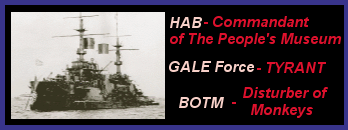Zinegata wrote:
Ergh, the Rangers in the Italian campaign were "annihilated" because they were surrounded and forced to surrender, it wasn't because they fought to the last man.
Yeah, they fought completely surrounded, lost 800 men (half of them as POWs), and held off armored units with only light weaponry, achieving a kill ratio close to 1:1.
That's actually not bad at all.
Zinegata wrote:Other units (i.e. the Rangers at Point Du Hoc / Omaha) fought very hard but suffered very high losses to the point they became combat-ineffective after the first few days of combat.
To be fair, the Point Du Hoc assault probably couldn't have been done by other infantry units. But given that it didn't actually help the invasion that much, it was questionable whether a company should have been earmarked to assault the battery in the first place.
But that's no fault of the unit itself, but the manner in which it is employed...and they did fulfill that objective, didn't they?
I don't see how "suffered lots of casualties" is something which you should hold against a military unit ; It's common for elites troops to suffer higher casualties than usual, because as I pointed out before, they don't break as easily. In fact, a lot of Soviet special forces units were treated like rounds of ammunition,
expected to be completely wiped out during the course of their operatoins, but were doubtlessly elite.
Zinegata wrote:I would say that being "elite" also means knowing that it is not a good idea to assault high cliffs with grappling hooks. It's very daring and makes for good reading, but also tends to result in catastrophic losses and alternate methods should have been explored instead. The original commander of the Rangers earmarked to assault Point Du Hoc himself objected to the assault - pointing to the (correct) Free French intelligence that the guns had already been moved, and got relieved of his command for daring to suggest that they don't press ahead with it.
Uh...so you say a TRUE elite unit would know the attack was folly, and then in the same post say that their commander did, in fact, know it was folly and made it publically known?

Being commanded to do difficult and possibly suicidal things, and then carrying out these orders and suceeding (they destroyed the guns and held the Point, didn't they?) is...not an indicator of a military unit sucking at what they do.



